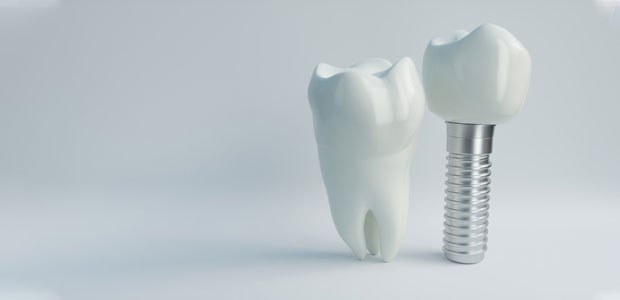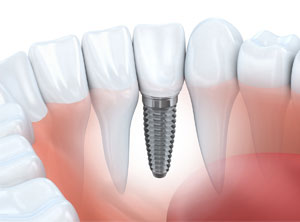The choice on whether to get a dental implant or crown depends on your specific dental need, preference and budget. Both options are done to replace a missing tooth or teeth. A dental implant requires attaching a brand new tooth or teeth directly to the jawbone. Meanwhile, a dental crown or bridge utilizes the natural teeth as support.

Crowns are made of either ceramic or porcelain. These are fitted over the existing tooth or teeth. At times, dental crowns are placed on teeth that are badly decayed. In the case of a missing tooth, a fixed bridge is applied in order to fill the gap. The process starts by grounding down any remaining good teeth found on the gap’s sides.
This is done to allow crowns to be placed atop them. The two crowns can then be seen on the bridge’s opposite ends, while the replacement tooth or teeth sits at the center of the bridge. In the end, the bridge is cemented permanently on the natural teeth.

Dental implants are prosthetic roots made from titanium. Implants are named as such due to the process involved in placing them into the jawbone. The procedure involves surgically placing small screws or blade, and titanium cylinder. Afterwhich, a crown is then attached to the implant. The crown eventually functions as a tooth.
The implants used are body-compatible and will directly attach to the jawbone’s cells through time via the osseointegration process. Once these implants are fused securely onto the bone, the dentist will begin attaching a prosthetic tooth atop the implant.
Related article: The facts about all-on-four dental implants
Crowns are usually included in bridgework and are done for the purpose of dental restoration. The following are the benefits of having dental crowns:
Meanwhile, dental implants are better options for some people due to the following benefits:
Though crowns offer benefits, they also have the following disadvantages:
Meanwhile, dental implants have the following disadvantages:
All in all, dentists will first need to check your general physical and oral health before they will recommend the procedure that suits your dental needs. Not everyone would require a crown the same way that not everyone might need an implant. At times, chronic diseases such as diabetes, or a habit such as smoking, could halt proper healing. These factors could influence the type of procedure that will be recommended to you by a dentist.
A healthy body, and thereby healthy gums and jawbones, are necessary to make the placements of either implants or crowns successful. Make sure you know the pros and cons of each option before you make your final dental decision.
Related article: Top 3 things you need to know about dentures